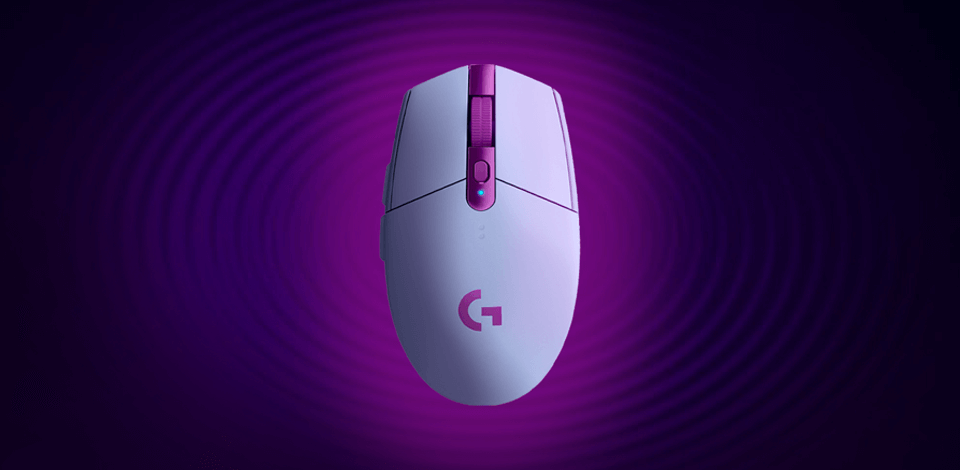
Right now, I'm struggling to find a high-quality mouse that costs under $40. The main issue is the price.
Many cheap about $40 mice produced in China often have poor build quality and don't last long. They also aren't good enough for my photo editing needs.
This problem makes me look for the mouse that can be precise for drawing and responsive for gaming.
It’s important to find a good balance between price and performance to get the most value for my money. My choices range in price from $17 to $44.
 My Pick: Budget but Efficient Kit
My Pick: Budget but Efficient Kit
The Logitech G305 is the best mouse under $40 because it has wireless Lightspeed technology, offers a lag-free experience, and provides excellent accuracy and responsiveness.
I also like its design, customizable buttons, and long battery life. This mouse works well for both detailed photo retouching and professional gaming.
To pick the best mouse under $40, I looked at several things: accuracy, comfort, size, shape, connectivity, and how well it works for both gaming and everyday tasks. I needed a mouse that would be accurate for editing photos and videos and fast and responsive for gaming.
In my tests, I used each mouse in various situations. For gaming, I checked how quickly and accurately it responded during 2-3 hour play sessions.
For video and photo editing, I checked how precise and comfortable the mouse was during long periods of use.
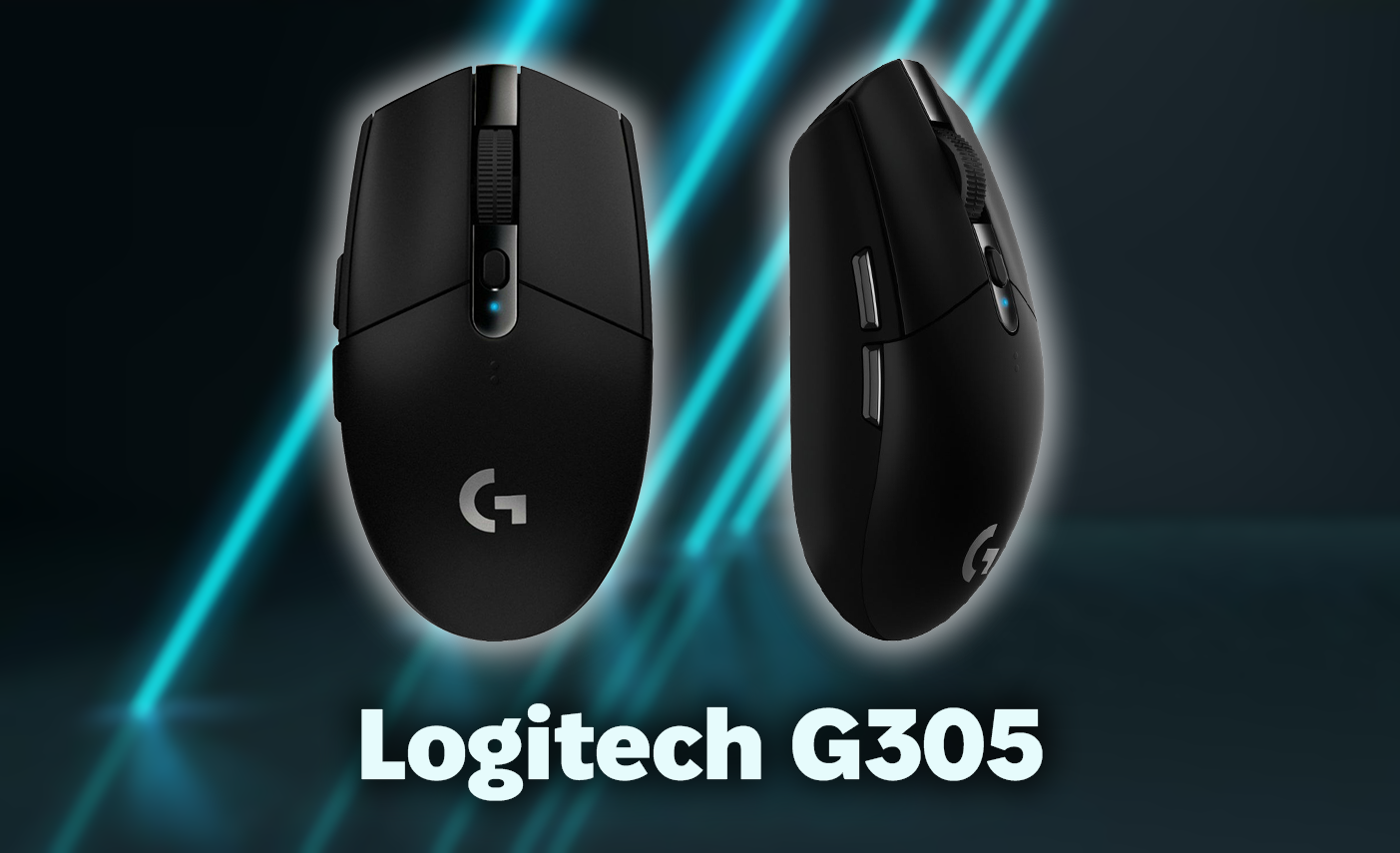
DPI: 12000 | Connectivity: Wireless | Sensor: Optical | Buttons: 6 | Ergonomic: Ambidextrous | Battery life: 250 hours | Weight: 3.36 ounces
I’ve been using the Logitech G305 every day, and it’s a great mouse, especially for its price. The wireless performance is excellent. Thanks to its Lightspeed wireless technology, I haven’t experienced any lag, which is important during intense gaming sessions.
The design of this heavy gaming mouse is another big advantage. It feels comfortable in my hand and stays pleasant to use even during long gaming sessions. It moves smoothly and doesn’t make my hand tired, making it great for extended use.
I play games that require high FPS, and the sensor works accurately for everything I need. Adjusting the DPI settings was easy with Logitech's software, so I could set it up just how I prefer. The two side buttons are in a good spot and feel nice, making it easy to use important functions quickly.
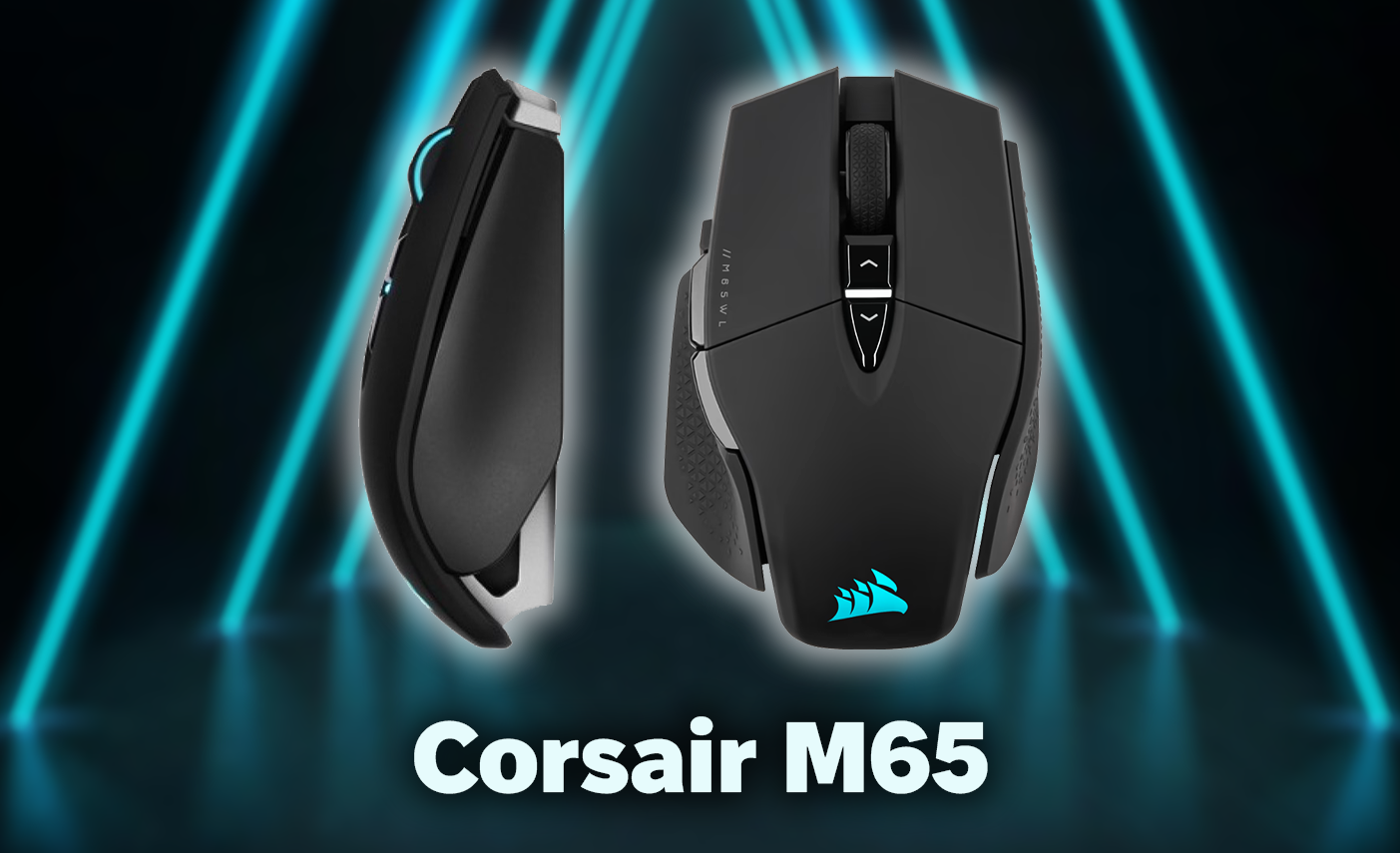
DPI: 18000 | Connectivity: Wired, USB | Sensor: Optical | Buttons: 8 | Ergonomic: Right-Handed | Weight: 3.36 ounces
What impressed me about the Corsair M65 RGB Elite the most was its strong and sturdy aluminum frame. This gaming mouse under $40 has a comfortable spot for your thumb, which makes it feel nice in my hand.
In my tests, the optical sensor worked great on my old black cloth mouse pad. It tracked my movements accurately and quickly, even at high DPI settings. The wide range of DPI settings was helpful too, letting me adjust the mouse to the exact sensitivity I needed for different tasks.
The mouse has eight buttons that you can customize. They're easy to get used to, and the button for changing DPI is placed where you won’t accidentally press it.
One aspect where M65 RGB Elite has got far better is its software. Its modern Corsair Utility Engine is a rich, nuanced, powerful program that gives experienced gamers endless play space. Whether I’m gaming or doing graphic design, this mouse has worked great for everything.
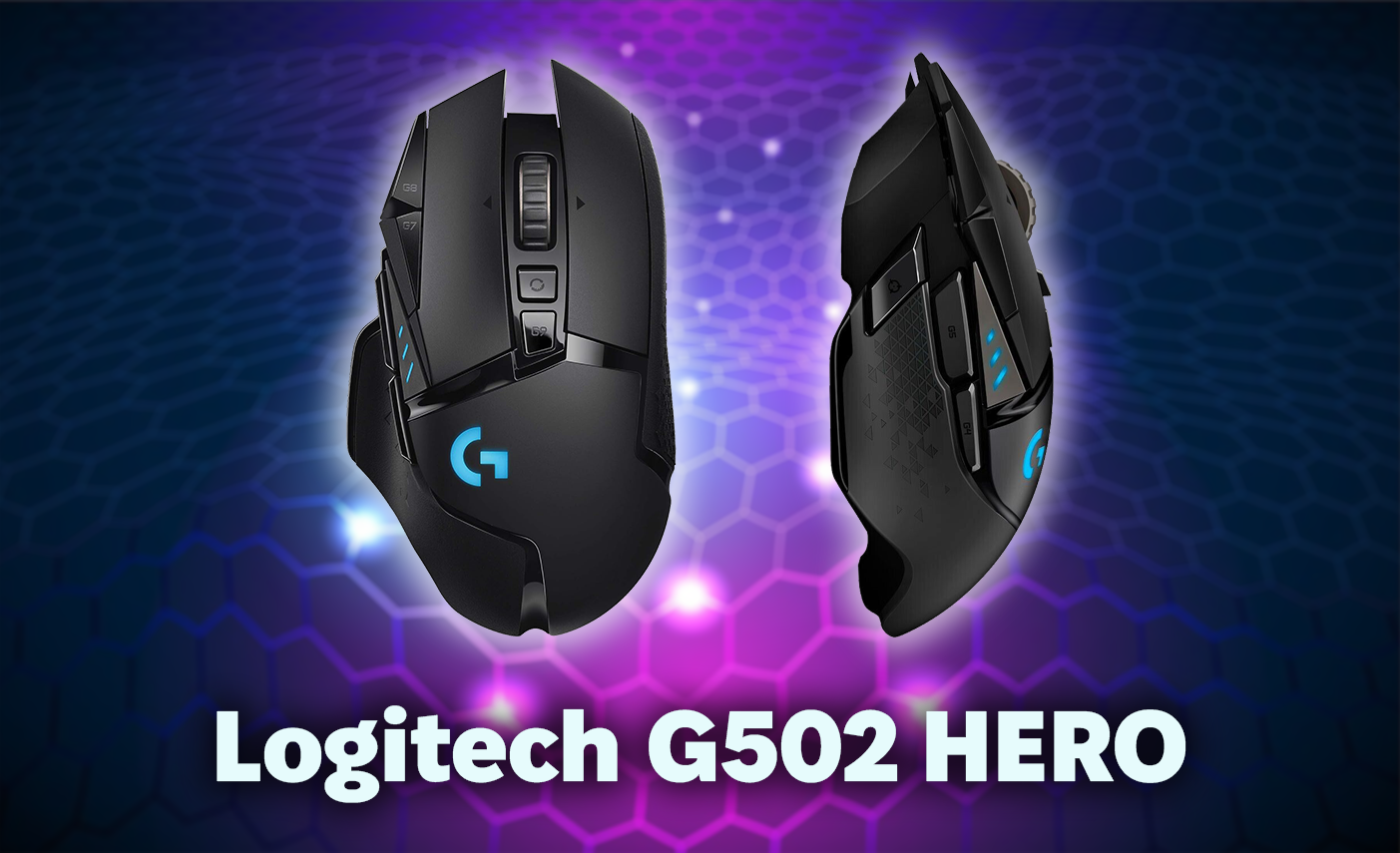
DPI: 25600 | Connectivity: Wired, USB | Sensor: Optical | Buttons: 11 | Ergonomic: Ambidextrous | Weight: 4.3 ounces
Even though the Logitech G502 HERO costs more than $40, it often goes on sale with a good discount. It has many programmable buttons, very quick clicks, and a range of adjustable CPI settings. Even though it’s quite heavy, it has five removable weights so that I can customize the weight for my wish.
With 11 customizable buttons, I can create shortcuts, navigate pages, and assign other commands to make my work easier. This makes it an excellent mouse for graphic design. I can also program the buttons for each game. For example, I use G8 and G9 for key functions, while the forward and back buttons stay as they are.
Although the design is a bit unusual, it still works well. Even with my small hands, I can reach and use almost all the buttons. For everyday tasks, I set the DPI higher (about 1700), so I can move the mouse across screens with very little effort. For gaming, I lower the DPI (around 800) to improve accuracy.
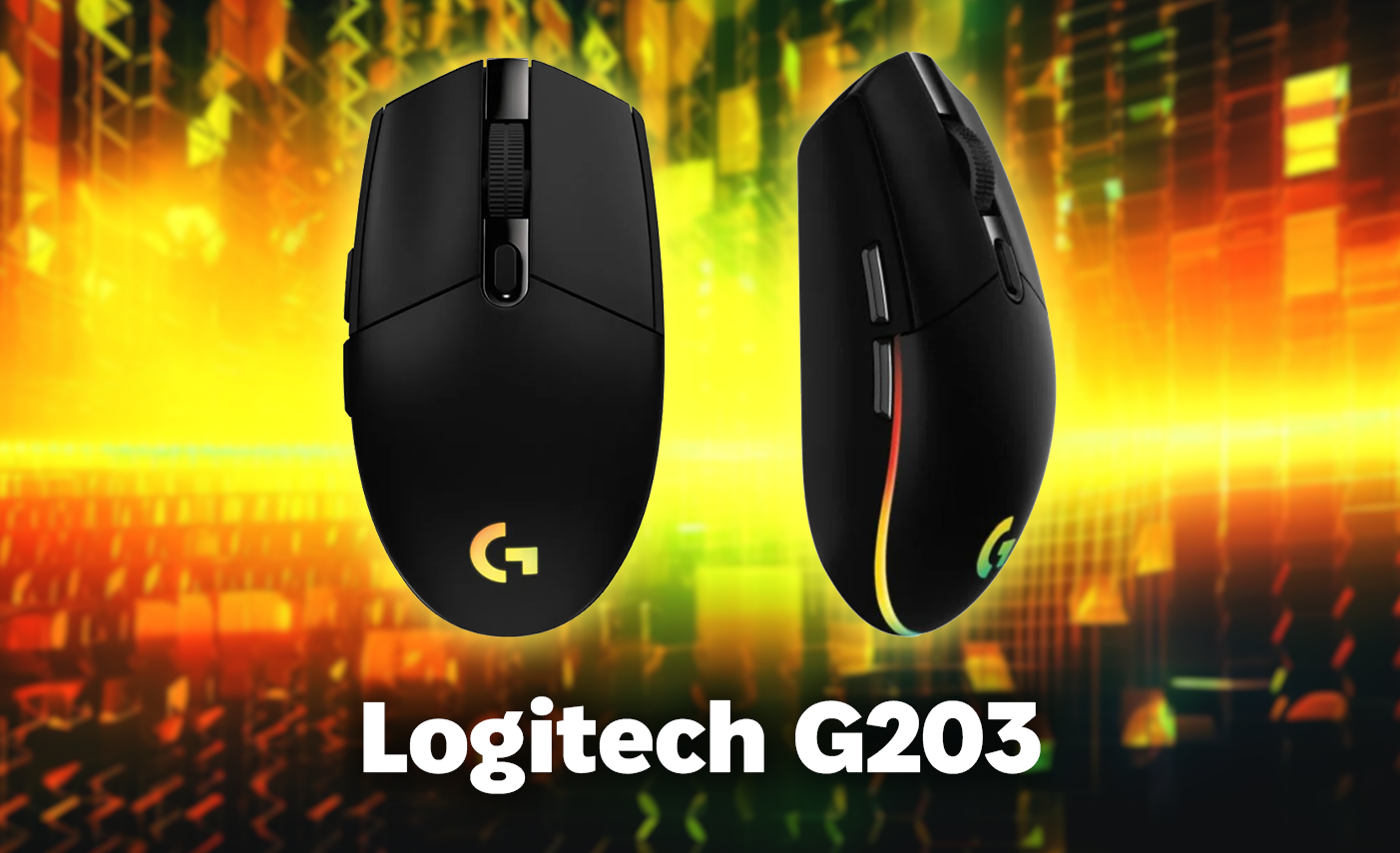
DPI: 8000 | Connectivity: Wired, USB | Sensor: Optical | Buttons: 6 | Ergonomic: Right-Handed | Weight: 2.98 ounces
The 8,000 DPI gaming sensor tracks my movements accurately, working well on different surfaces. I adjusted the sensitivity settings using Logitech G HUB software, so I can easily switch between up to five DPI levels.
This budget wireless gaming mouse has a simple but effective design. Its classic six-button setup and familiar gaming shape make it comfortable and easy to control. Also, the buttons can be easily customized. The RGB lighting is a great feature, with bright Lightsync RGB effects that you can change to any of 16.8 million colors.
The G203 is great for more than just gaming. It works well for everyday tasks like working on documents, browsing the web, or photo editing. The mouse is light and has a simple shape. It doesn’t have the extra features like other more expensive models, but I also found it to be a great CAD mouse.
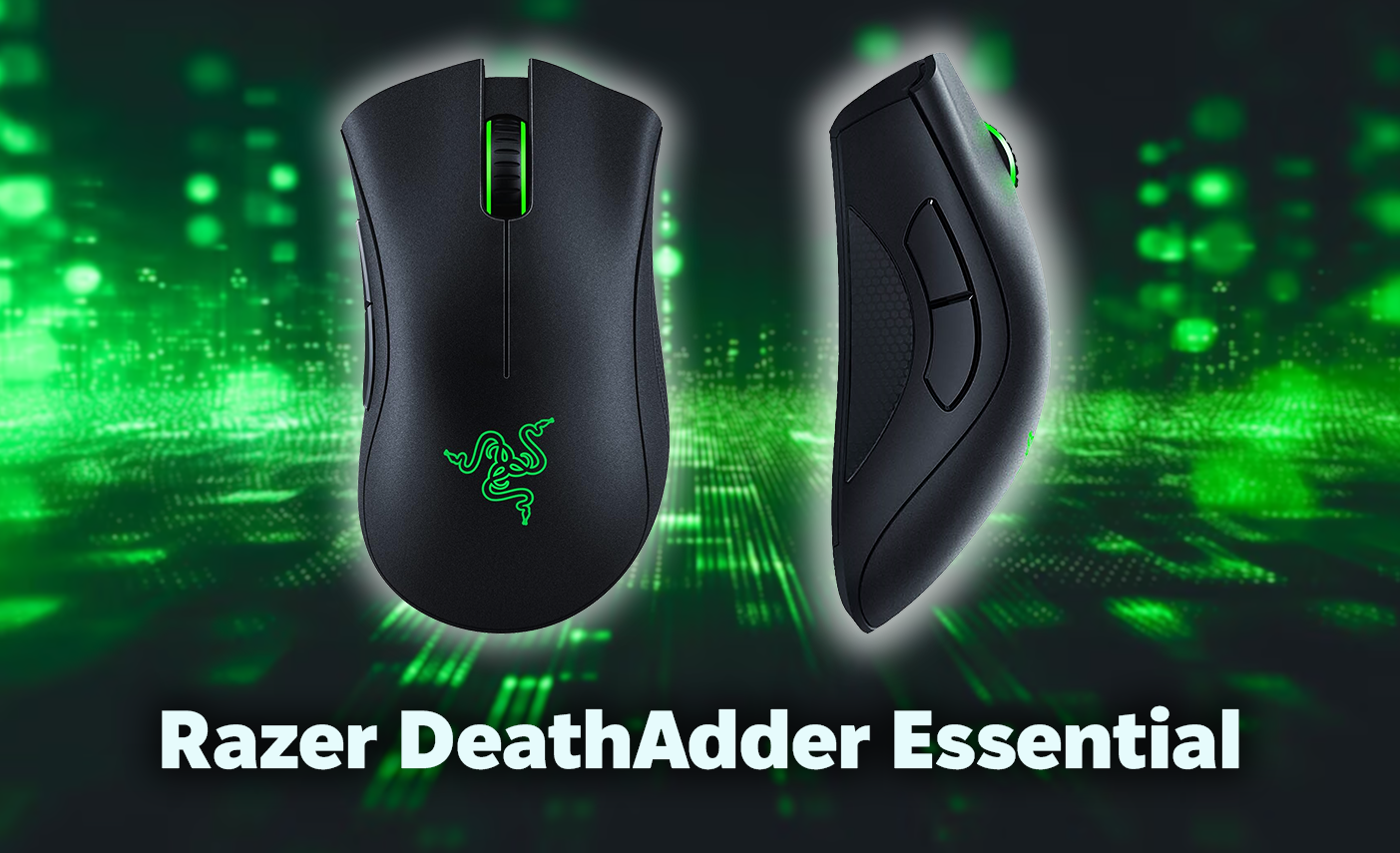
DPI: 6400 | Connectivity: Wired, USB | Sensor: Optical | Buttons: 5 | Ergonomic: Ambidextrous | Weight: 4.6 ounces
The Razer DeathAdder Essential has a precise 6,400 DPI optical sensor, letting you adjust sensitivity quickly using dedicated DPI buttons. It can handle up to 10 million clicks thanks to its sturdy mechanical switches and comes with a 2-year warranty.
The Razer DeathAdder is designed to be comfortable and lightweight, so it's easy to use for long periods. The scroll wheel has a textured, rubber grip that helps with accuracy. I found the five programmable buttons very handy, as they let me customize functions and set up complex functions using Razer Synapse.
While testing the mouse with fast FPS games, it worked great, responding quickly and tracking accurately. The DPI buttons made it easy to change sensitivity on the go.
Besides gaming, the Razer DeathAdder is also good for everyday tasks and creative work. I use this mouse for video editing as well.
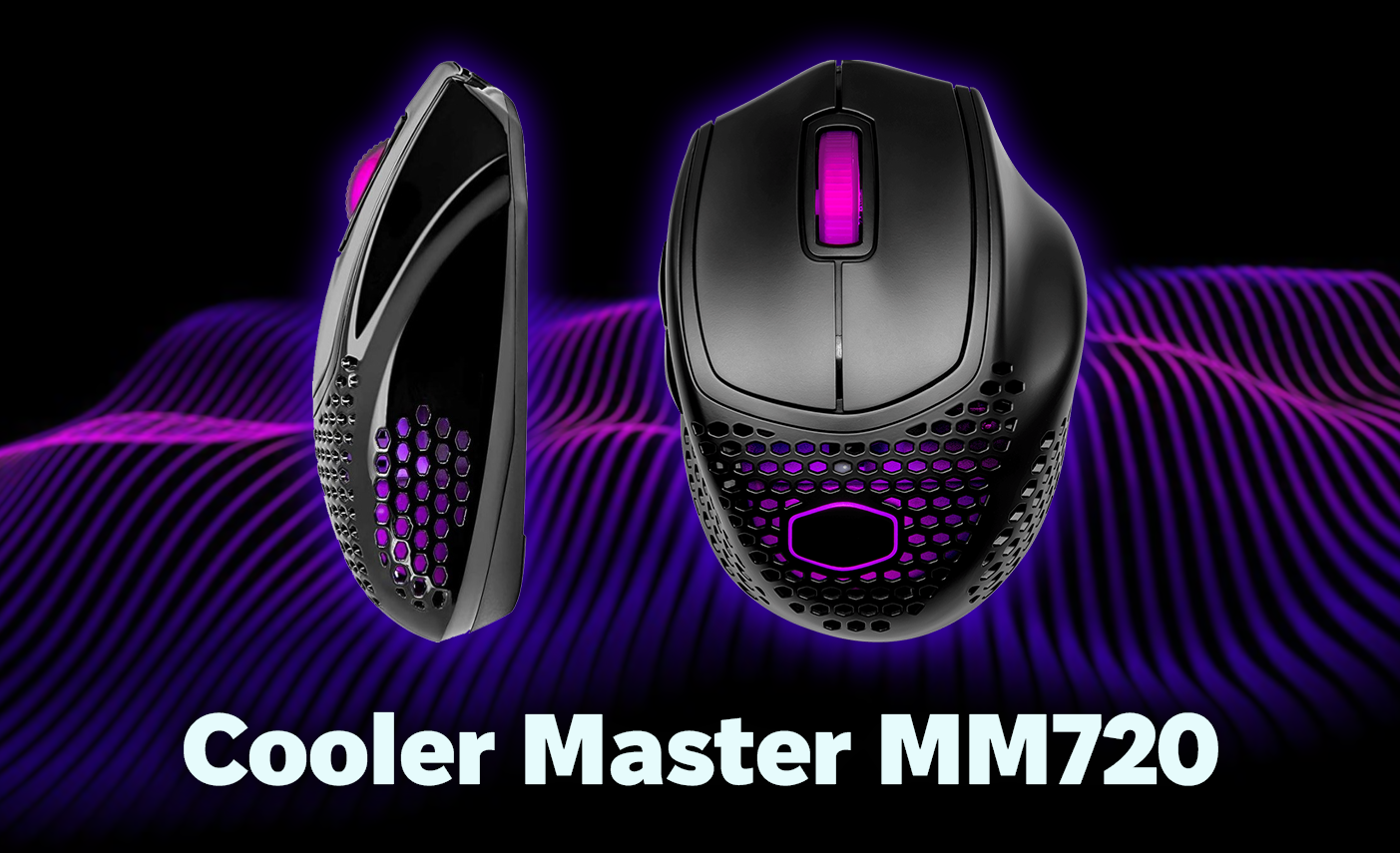
DPI: 32000 | Connectivity: Wired, USB | Sensor: Optical | Buttons: 6 | Ergonomic: Right-Handed | Weight: 1.73 ounces
The Cooler Master MM720 has a lightweight honeycomb shell that makes the mouse much lighter while still being strong. This design helps it glide smoothly and easily, improving my performance. Another great feature is the Ultraweave Cable, which prevents the cable from getting caught during intense gaming.
The wide DPI range lets me track movements precisely, which is very helpful for fast-paced FPS games. The switches are built to last for 20 million clicks, delivering dependable and steady performance during my tests.
This gaming mouse under 40 dollars also worked well for everyday tasks. The software let me easily adjust the RGB lighting, profiles, and macros. The updated PTFE mouse feet made the mouse glide smoothly and quickly, with minimal friction and no cable drag.
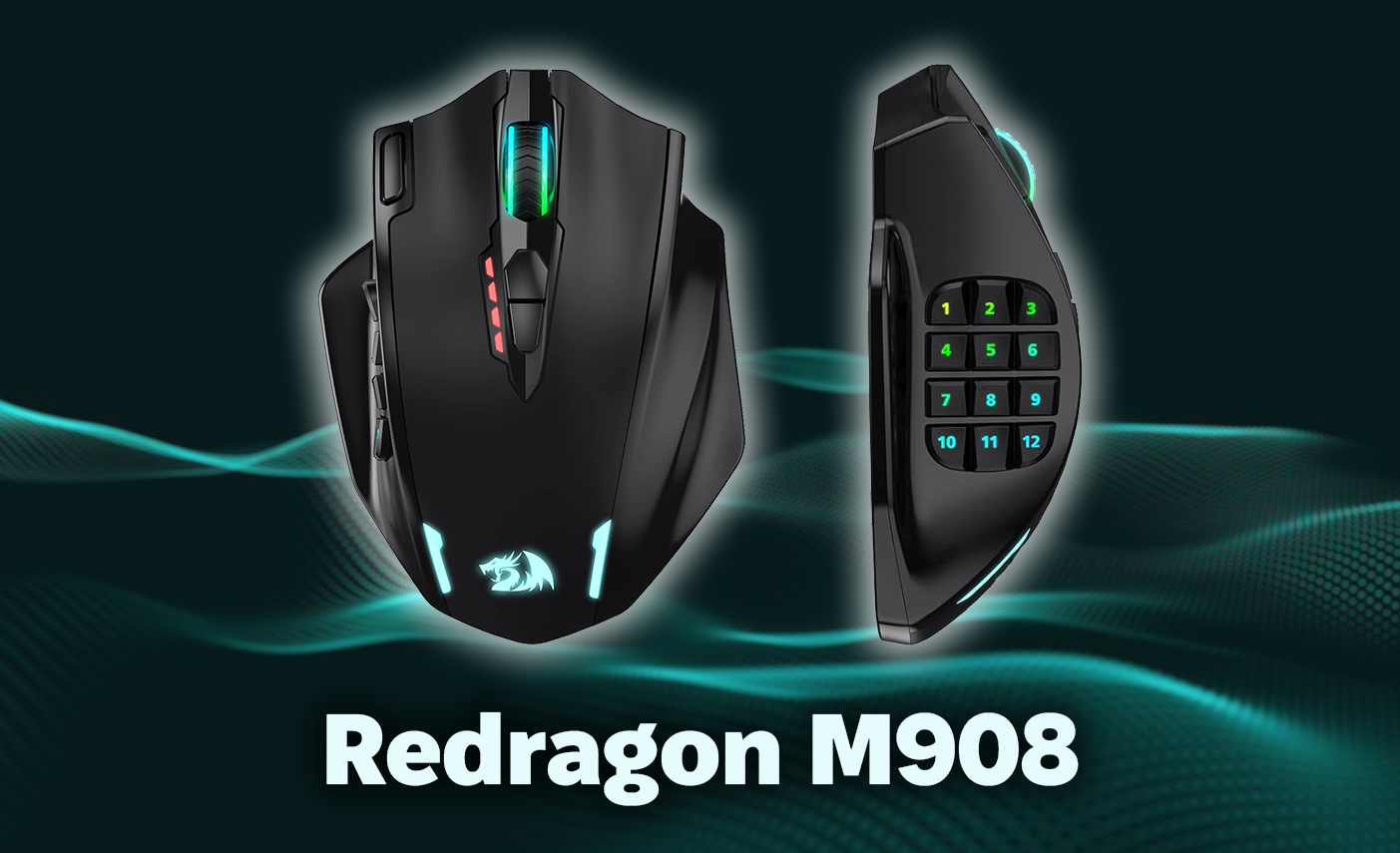
DPI: 12400 | Connectivity: Wired, USB | Sensor: Optical | Buttons: 20 | Ergonomic: Ambidextrous | Weight: 6.2 ounces
I think the Redragon M908 is a great pick, especially for MMO players. This blue gaming mouse has many programmable buttons and performs well overall. The wired connection is very fast, making it responsive even in quick games.
The design is big and tall but short, so the mouse under $40 works well for palm or claw grips. However, it might be too big for small hands and too short for very large hands. The 12400 DPI and adjustable DPI settings were perfect for both gaming and daily tasks. I could easily change the DPI using the software, which was a big advantage.
The optical sensor, with its 1000 Hz polling rate and 30G acceleration, gave me an advantage in games. I liked the programmable buttons and found them especially useful. In an MMO, I set up different skills and actions on the side buttons, which made my gameplay more efficient and fun.
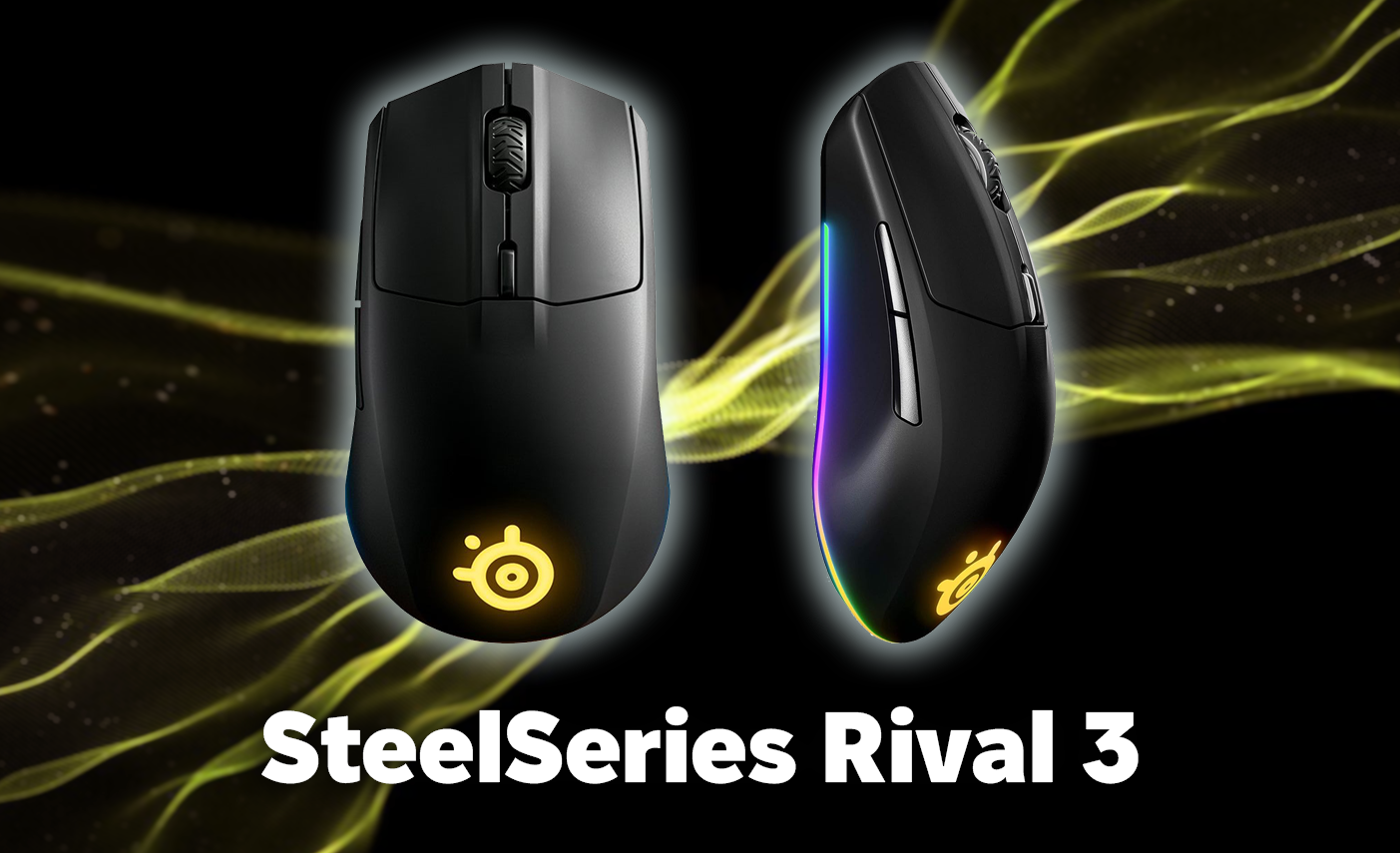
DPI: 8500 | Connectivity: Wired, USB | Sensor: Optical | Buttons: 6 | Ergonomic: Right-Handed | Weight: 2.7 ounces
I chose the wired version of the SteelSeries Rival 3 because it’s known for its accuracy and durability. After using it, I was impressed with how well-built it is. The high-quality polymer used in its design makes it feel strong, and the 60 million click mechanical switches provide a satisfying and reliable click each time.
The TrueMove Core optical sensor works well. I tried the mouse for different tasks, like editing photos in Adobe Lightroom and playing fast-paced games. The tracking was perfect, and the 8500 CPI setting was more than enough for me. Even during heavy use, the mouse performed consistently.
The shape of this mouse for photo editing makes it easy to hold, which is important for long photo editing sessions and gaming marathons. The mouse under $40 has three customizable color zones with 16.8 million colors that are bright and add a nice look to my setup.
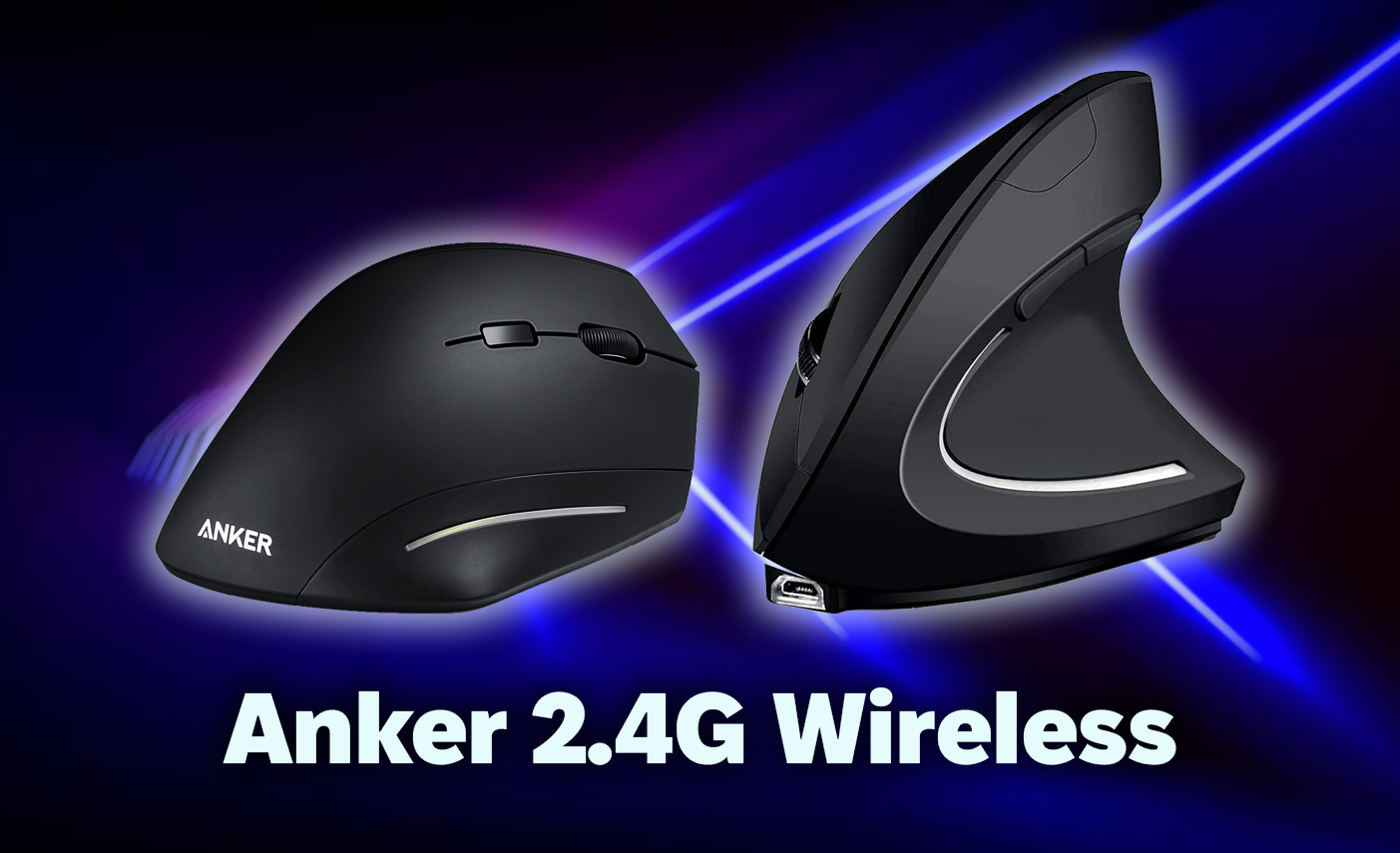
DPI: 1600 | Connectivity: Wireless, Wi-Fi | Sensor: Optical | Buttons: 6 | Ergonomic: Right-Handed | Weight: 3.36 ounces
Since I spend a lot of time at my gaming PC for leisure and work, the Anker 2.4G Wireless Mouse caught my attention. Its ergonomic design helps keep my hand in a natural position, which is great. I was also impressed by its battery life: it lasted for weeks on just one AA battery, even with daily use.
I used the mouse for different tasks, like browsing the web and detailed photo editing. The adjustable DPI settings let me change the cursor sensitivity for different activities, making sure it tracked smoothly and accurately on all surfaces.
Whether I used it on a desk or an RGB mouse pad, the tracking stayed even and accurate.
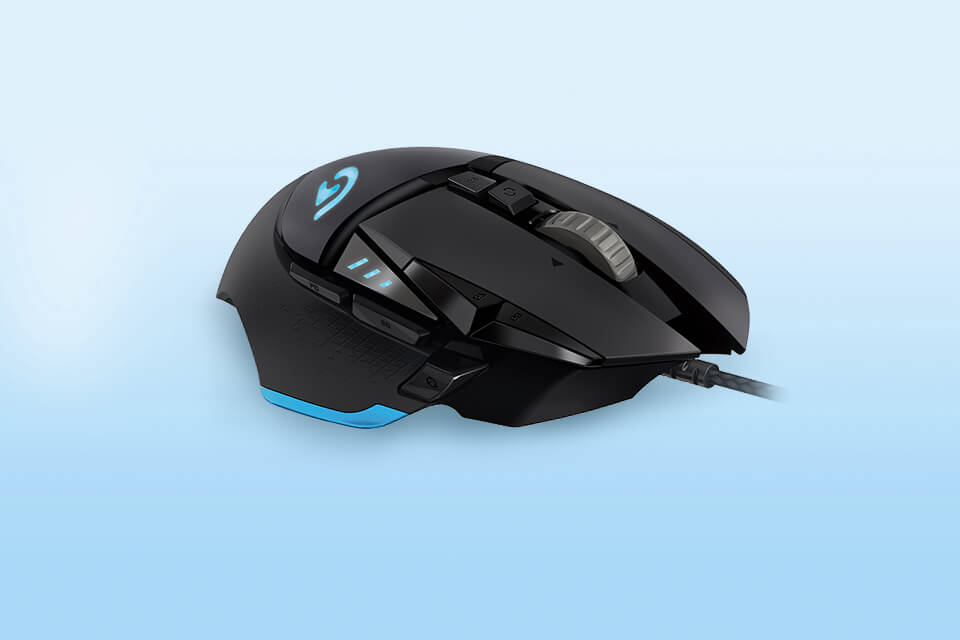
Think about how you'll mostly use the mouse. Decide if you need a mouse for gaming, work, or both. This will help you choose features like DPI sensitivity for gaming or a comfortable design for long periods of work.
Check the DPI and sensor quality. Look for a mouse with a high DPI range and a good sensor. This guarantees precise and fast reactions, which are important for gaming and detailed work like photo and video editing. Usually, you can select a DPI range starting from 2400 up to 16000.
Size. The way you hold the mouse (palm, claw, or fingertip) affects what size is best for you. If you use a palm grip, you usually need a larger mouse. For a claw grip, a medium-sized mouse works well. If you use a fingertip grip, a smaller mouse under $40 is typically better.
The shape is important. A mouse can be ergonomic, designed to fit the shape of the right hand, or it can be ambidextrous, which means it works well for both left-handed and right-handed users.
Weight is another factor. Most gaming mice weigh between 2.8 and 4.2 ounces. Lightweight mice (under 2.8 ounces) are popular with gamers who prioritize speed and quick movements. Heavier mice (over 4.2 ounces) are preferred by those who want more stability and control.
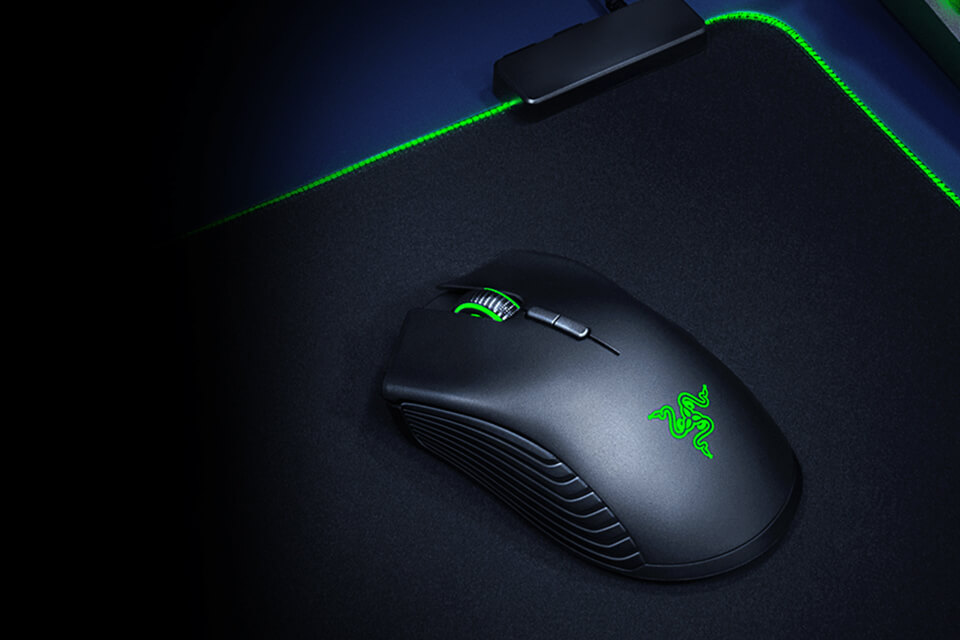
Customization options. Mice with customizable buttons can increase productivity by letting you set up shortcuts for different tasks. This is helpful for both gaming and professional work.
Build quality and durability. The mouse should be strong enough to handle regular use. Choose one that’s well-made to make sure it lasts a long time.
Connectivity. Choose wired or wireless based on what you like. Wireless mice give you more freedom of movement. However, make sure they connect well to avoid lag.
Read reviews. Look at what users and experts say to understand how the mouse performs and if there are any problems.
Yes, you can find several good gaming mice for under $40. Although spending more money might get you more features, most budget options still have the important features needed for a good gaming experience.
While the best options for gamers are quite expensive, they are well worth their price. However, if you don’t need extra buttons and advanced lighting effects, check out gaming mice under 40 USD. If you want to buy a mouse for gaming and casual use, it’s better to purchase an all-purpose device.
A gaming mouse is quite expensive piece of gaming gear. If you are interested in high-end devices, look at the options that come at $50, $100, or more. However, you can easily find the best computer mouse for under 40 USD.
If you are a fan of eSport and enjoy playing FPS games, take a look at the Zowie mouse FK series, the Logitech G502, SteelSeries Sensei, and the Razer Deathadder. They are quite popular among professional gamers and can significantly boost your gaming performance.